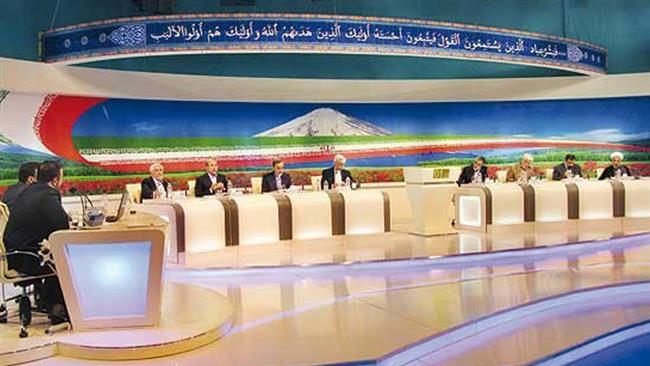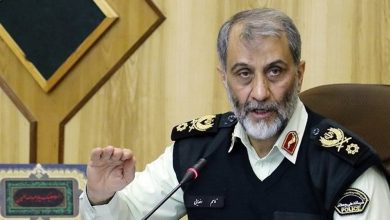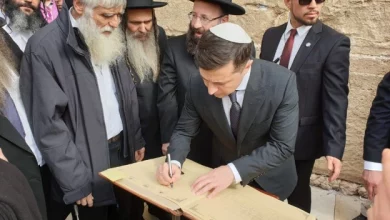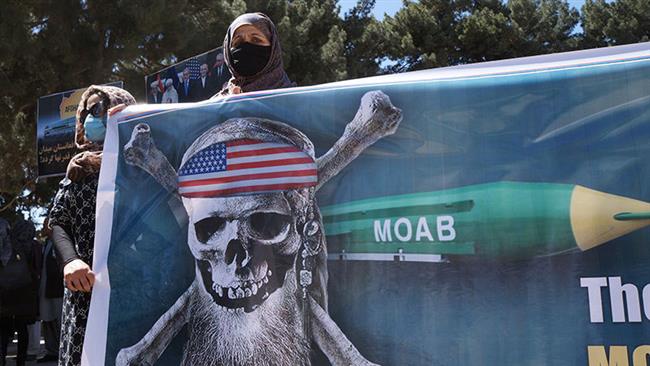Pezeshkian: Cause of regional developments to ‘israel’s’ exploitation of internal discord among Muslim nations
Iranian President Masoud Pezeshkian has stated that recent developments in the region indicate the Israeli government is taking advantage of tensions among Muslim nations to advance its aggressive agenda.
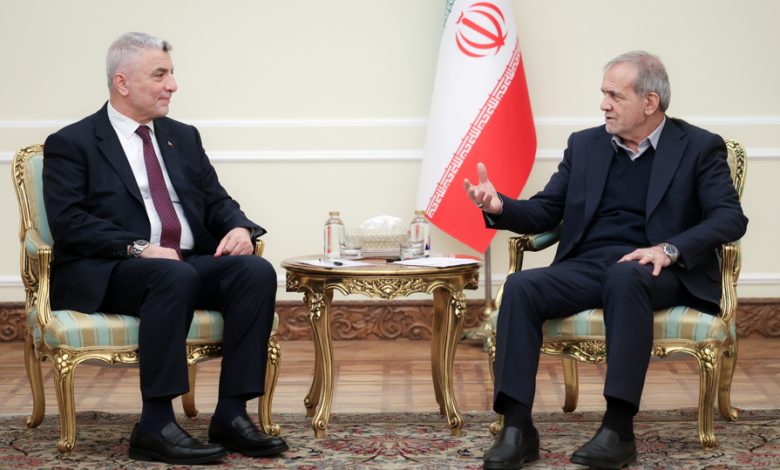
Iranian President Masoud Pezeshkian has asserted that recent regional developments indicate that Israel is taking advantage of internal divisions among Muslim nations to further its aggressive actions.
In a meeting held in Tehran on Wednesday, Pezeshkian shared his observations with Turkish Trade Minister Omer Bolat. The discussion took place just days after militant factions, spearheaded by Hay’at Tahrir al-Sham (HTS) from the northwestern Syrian city of Aleppo, achieved significant territorial gains. These developments culminated in former President Bashar al-Assad’s departure from the country on December 8.
A spokesperson has claimed that recent developments in the region suggest the Zionist regime is taking advantage of divisions among Muslim nations to conduct assaults on Gaza, Lebanon, and Syria, resulting in the deaths of Muslims.
He stated that putting aside differences could significantly bolster the strength of the Muslim world, leading to interactions with the global community grounded in mutual respect.
He called on Muslims to resolve their issues “in a spirit of brotherhood” and to consolidate the strength of the Muslim world “through action rather than rhetoric.”
Should Muslim nations collaboratively leverage their resources—encompassing trade markets, transportation networks, and various other potentials—it would likely yield significant benefits for the entire Muslim community. Such unity could deter the Zionist regime and other global powers from undertaking any criminal actions or meddling in the internal matters of Muslim countries.
The President of Iran emphasized the importance of strengthening ties between Muslim nations during discussions with Turkish President Recep Tayyip Erdogan.
In a recent statement, Pezeshkian emphasized the importance of strengthening diplomatic and economic ties among Muslim nations. Concurrently, Iran and Turkey have reached an agreement to create a free trade zone along their shared border. This development follows the visit of Iranian President Ebrahim Raeisi to Ankara, underscoring both countries’ commitment to enhancing bilateral relations.
During his address, he further indicated Iran’s willingness to enhance collaboration with Turkey across various sectors. He emphasized that Tehran aims to establish a framework for financial interactions with Turkey, with the goal of reducing reliance on the U.S. dollar in bilateral trade transactions.
The president expressed Iran’s determination to uphold bilateral agreements and strengthen cooperation, with the aim of thwarting adversaries who seek to undermine the relationships between Muslim nations.
Pezeshkian criticized the United States and European nations for imposing what he termed as “unfair” sanctions on Iran, aimed at pressuring the country into compliance, but asserted these efforts have been unsuccessful.
The Turkish minister, currently in Tehran for the 29th session of the Turkey-Iran Joint Economic Cooperation Commission, announced that both nations are making concerted efforts to achieve a bilateral trade target of $30 billion.
Bolat announced that his nation is seeking to renew its 25-year trade agreement with Iran, specifically concerning the energy sector.
In a bid to enhance bilateral trade relations, Iran and Turkey are set to upgrade their border gates to streamline customs operations, according to a statement by Bolat. He also mentioned that Turkey is making efforts to establish two additional border crossings with Iran.
He further stated that efforts are underway to fortify border crossings and enhance market interactions between the two nations.
Bolat expressed his country’s strong interest in reactivating the preferential trade agreement established with Iran in 2015 and advancing the execution of a comprehensive tourism accord.
